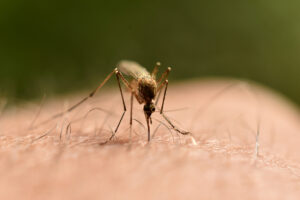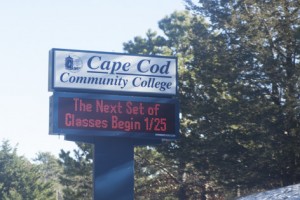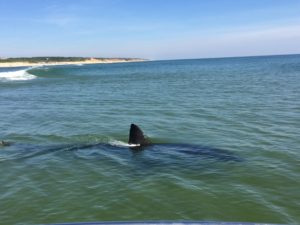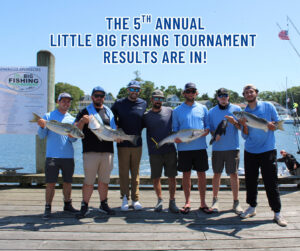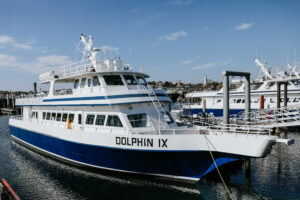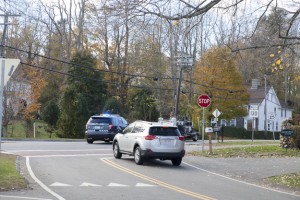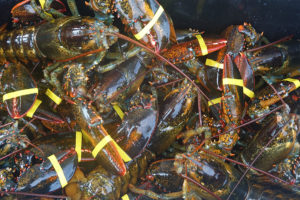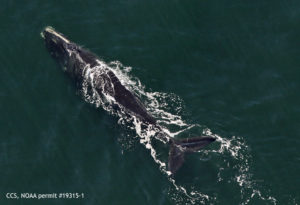
Right whale #4550, a juvenile female born in 2015, photographed in Cape Cod Bay by the Center for Coastal Studies aerial survey team on January 6, 2020. CCS, NOAA permit #19315-1.
PROVINCETOWN – Just as local researchers received news of a third right whale calf sighted off the Georgia coast, a pair of the critically endangered whales were spotted in Cape Cod Bay.
Researchers with the Center for Coastal Studies in Provincetown report that an aerial surveillance team spotted two of the whales in the Bay on January 6.
The first right whales spotted in the bay in 2020 were #2480, and adult of unknown sex that was first documented in 1994, and #4550, a juvenile female born in 2015.
The whales were identified by unique markings. Both whales were last spotted in the bay during the 2018-19 right whale season.
The critically endangered whales, which have a population of just over 400, visit the bay each winter and spring to feed on rich blooms of microscopic zooplankton.
Between December 2018 and May 2019, researchers identified 268 individual whales in the bay, about two-thirds of the entire population.
Center for Coastal Studies senior scientist Charles “Stormy” Mayo said there are more calves born during the last month of the birthing season, which he said lasts about another month.
“The issue on right whales is a critical one and we need to see many more this year to begin to really feel relieved,” Mayo said.
Three births this season is a positive, but Mayo said that is still too low of a number.
Mayo was hoping to see upwards of 20 new calves this year.
“There is a very large number of the relatively small population of females who should be physiologically in a position to give birth,” Mayo said. “If they are not we will continue to have a problem.”
Mayo said the news of the third calf is a mixed bag.
“It is good that we’ve got calves born, but it is still a critical situation and we need to see a large number of more births,” he said.
The right whale population has faced high mortality and poor reproduction in recent years. There were no calves born in the winter of 2017-18.
Mayo said that at least 30 right whale mortalities have been reported during the last three years and only twelve calves have been born during that same period.
“The loss of even one more breeding female is catastrophic,” he said. “If we don’t step up our efforts to protect these incredibly rare animals they could become functionally extinct in our lifetime.”
Mayo is optimistic that there will be more births before the end of the season.
“Whether we will hit the kind of numbers that will begin to bail this population out of the deep hole that it’s in or not is right now anybody’s guess,” he said.
The center launched the Right Whale Emergency Initiative to better protect the population after the 2017-18 season which had at least 20 whale deaths reported.
The initiative broadened the aerial survey area to encompass recently designated eight whale critical habitat on Jeffreys Ledge, off the coast of Massachusetts and New Hampshire. It also extended the survey season by three months.
With financial support from local businesses, foundations and individuals, the center began aerial surveys in October 2019 and will continue through May.
The increased effort will allow the center to find and free entangled right whales and expand the ability of federal and state agencies to protect the population.
Real-time sighting reports from the aerial surveys allow agencies to determine when and where to implement Dynamic Management Areas and publish public notice to mariners to ask for a voluntary reduction in vessel speeds in the DMA zones, or to travel around the areas.
In December, a DMA was issued for waters south of Nantucket after a center team confirmed the presence of fourteen right whales in the area.
It is illegal for watercraft or aircraft of any kind to approach within 500 yards of a North Atlantic right whale without a federal research permit.
Entanglements and vessel strikes are the leading causes of mortality for North Atlantic right whales.





